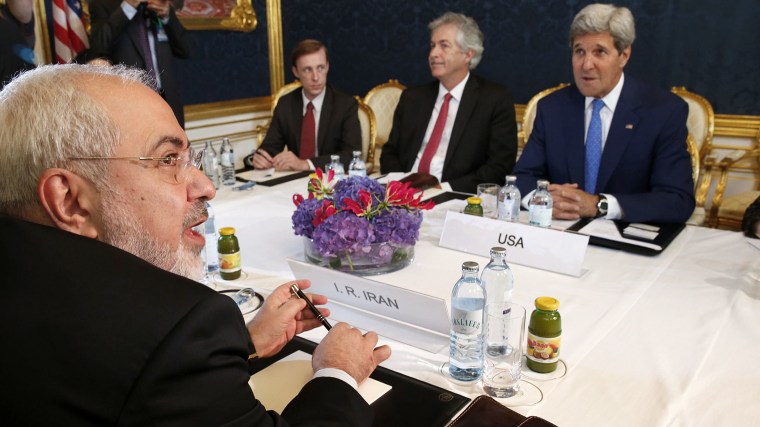In late 2010, President Obama and much of the foreign-policy establishment around the world eagerly waited for the U.S. Senate to ratify the New START nuclear treaty. The agreement, reached earlier in the year after lengthy negotiations with Russia, was championed by Sen. Richard Lugar (R-Ind.) and Bush administration veterans, but Senate Republicans were prepared to kill it.
At the time, Pierre Vimont, the then-French ambassador to the United States, noted that he and other diplomats warned European officials that Congress might very well reject the treaty. "People ask us, 'Have you been drinking?'"
Vimont said.
It seemed implausible to believe American officials would deliberately derail a treaty that advances America's interests, and eventually, the Senate did ratify the proposal (though most Republicans voted against it). But what I remember from the debate is the degree to which the world watched with astonishment -- observers around the globe found it hard to believe just how radical congressional Republicans had become.
More than four years later, 47 Senate Republicans reached out to Iran, urging officials in Tehran not to reach an agreement with the United States, all in the hopes of sabotaging American foreign policy. And once again, much of the world seems aghast --
including the officials Republicans hoped to push away from the negotiating table.
Ayatollah Ali Khamenei, Iran's supreme leader, said the letter warning that any nuclear deal could be scrapped by a new president was "a sign of a decline in political ethics and the destruction of the American establishment from within." [...] "All countries, according to the international norms, remain faithful to their commitments even after their governments change, but the American senators are officially announcing that at the end of the term of their current government, their commitments will be considered null and void," Ayatollah Khamenei wrote.
In case it's not obvious, Iran's highest leader has an incentive to make the United States look bad, so his criticisms should be taken with a grain of salt. Khamenei has plenty of domestic political reasons to tell Iranians that the American establishment is, as he put it, "disintegrating."
But it's not just the Iranians who are
unimpressed with the radical Republican stunt.
A key European diplomat said Thursday that the letter to Iran from Senate Republicans "was not helpful" to ongoing international nuclear talks with Iran, as other officials lowered expectations for reaching a framework deal this month. German Foreign Minister Frank-Walter Steinmeier was reacting to a letter signed by 47 Senate Republicans warning Tehran that any nuclear deal it strikes with President Barack Obama will be nonbinding and easily undone. Steinmeier added that to call the missive unhelpful was "an understatement."
The
Politico report added that sources close to the negotiations believe Republicans may have helped Iranians. "The game that was played in the past is that we are credible and the Iranians are not credible," one source said. "The letter is creating the advantage for the Iranians. It is hurting our position in the negotiations."
It's worth noting that these are international, multi-party talks, not bilateral negotiations. The Republicans' letter
made no reference to the U.S. allies and negotiating partners, but it's worth reminding GOP lawmakers that "P5+1" refers to the five permanent members of the U.N. Security Council plus Germany.
Republicans may be prepared to ignore other countries and their role in global diplomacy, but the grown-ups involved in the negotiations themselves have no such luxury.
Former Sen. Sam Nunn (D-Ga.), an expert in nuclear proliferation, said this week that Republicans aren't just helping the Ayatollah's position, they're also helping "
weaken" the United States' credibility on the global stage.
There's a degree of irony to this: Republicans whine incessantly about the importance of American influence abroad and the need for President Obama to lead more. At the same time, however, these same GOP lawmakers
routinely make it more difficult to do exactly that.
Former Florida Gov. Jeb Bush's (R) recently released an attack ad in which
he argued, "Everywhere you look, you see the world slipping out of control. We have lost the trust and confidence of our friends."
In reality, "we" haven't lost anything. It's Bush's pals on Capitol Hill that are raising doubts about our international credibility.
